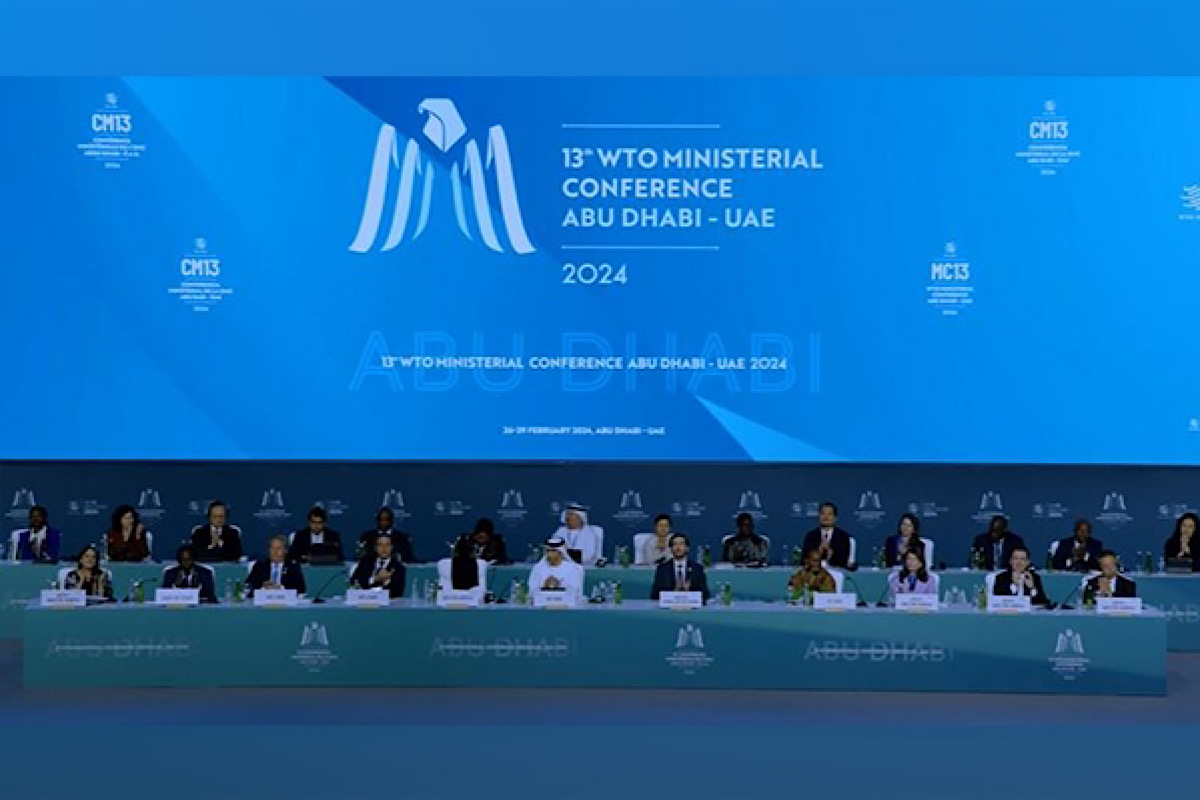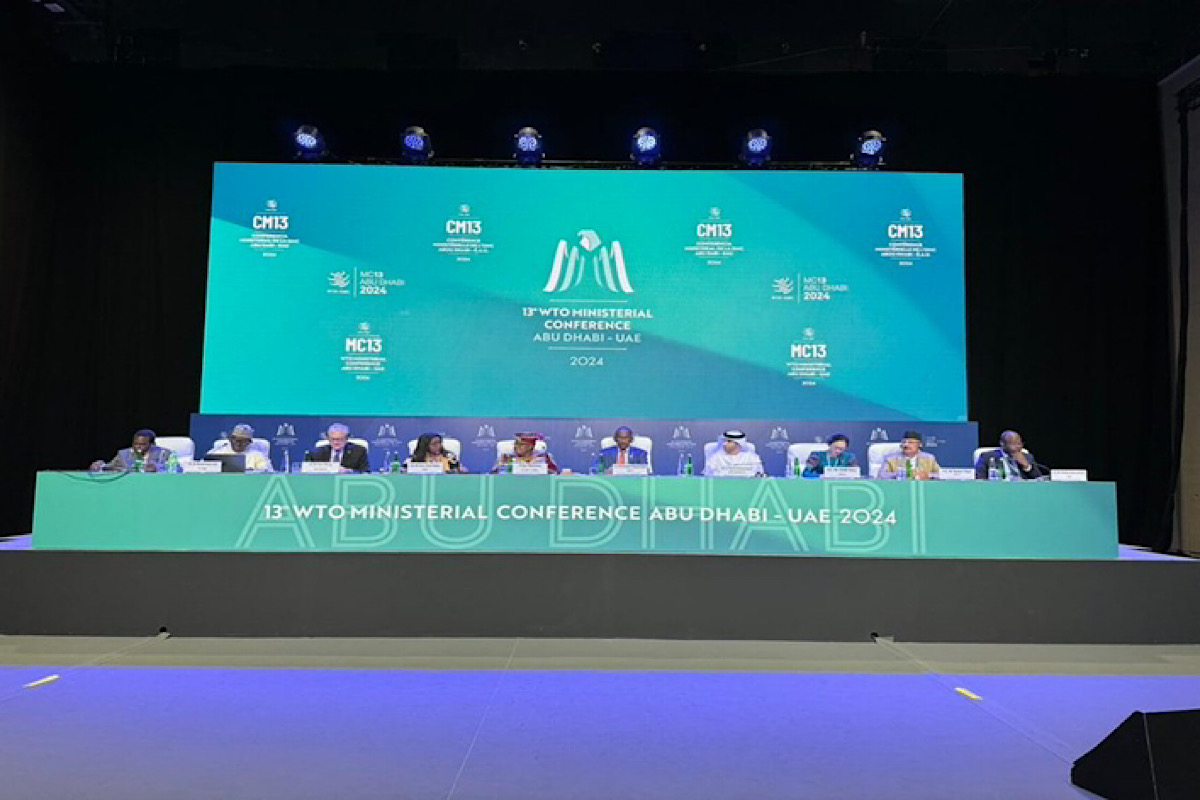The WTO is dead, long live WTO!
The World Trade Organization (WTO), established in 1995 as the successor to the General Agreement on Tariffs and Trade (GATT), was envisioned as the guardian of free and fair global trade.

The World Trade Organization (WTO), established in 1995 as the successor to the General Agreement on Tariffs and Trade (GATT), was envisioned as the guardian of free and fair global trade.

India’s growth rate was much higher than the 4 per cent increase posted by China and Germany.

The World Trade Organization (WTO) 13th Ministerial Conference at Abu Dhabi has been extended until Friday, March 1, to allow further discussions and facilitate outcomes on main issues.

It also discussed how this emerging segment of the global economy holds the promise for economic development and prosperity for the developing countries, including the least developed countries (LDCs).

Both the countries said that as there is no consensus on the agreement, and that it could not be included in the outcome of MC13.
It is high time for member-states to unite and adopt corrective measures and halt the WTO from losing its relevance. The member-states should immediately strike a deal on the vital issues of the dispute settlement mechanism, thereby averting the acute danger of the WTO falling apart. Failure of the WTO would be a severe shock not only to the multilateral trading system but also to the global economy as a whole.
The government had on June 21, 2018, decided to impose these duties in retaliation to the US decision of significantly hiking customs duties on certain steel and aluminium products.
At the summit-level negotiations of WTO, India upped the ante to protect its food security, even as the US refused to agree to the demands of developing nations on the issue. Initially, India was bargaining hard for improving an already available mechanism that safeguards government purchase of staple foodgrain from low-income and resource poor farmers at subsidised prices for stockpiling, and then distributing them to the country's economically weak.
The issue pertains to a case filed by Japan in December 2017 against India's decision to impose safeguard duty on some iron and steel products.
The row kicked off on September 27 when the Indian government announced a $1 billion sugar subsidy scheme in addition to a previous round of domestic industry assistance.